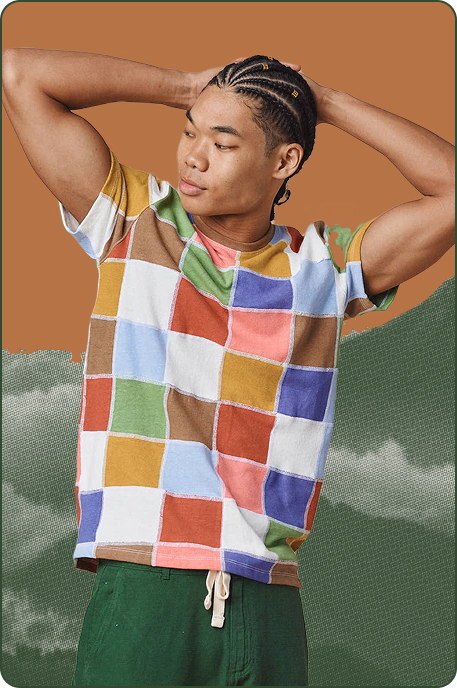SINCE 2005

From an idea born on the beaches of Costa Rica to where we stand today, we look back on all that we’ve accomplished over the past 20 years, and our mission to get everyone wearing hemp continues stronger than ever.
2005
The idea for Jungmaven was born on the beaches of Mal Pais, Costa Rica.
Some original Jungmaven logo marks from our early days.
 2006
Our very first tee shirts were produced, all batik and or naturally dyed by hand. This founding tee shirt shape lives on as the Baja Tee, one of our bestsellers to this day.
2006
Our very first tee shirts were produced, all batik and or naturally dyed by hand. This founding tee shirt shape lives on as the Baja Tee, one of our bestsellers to this day.
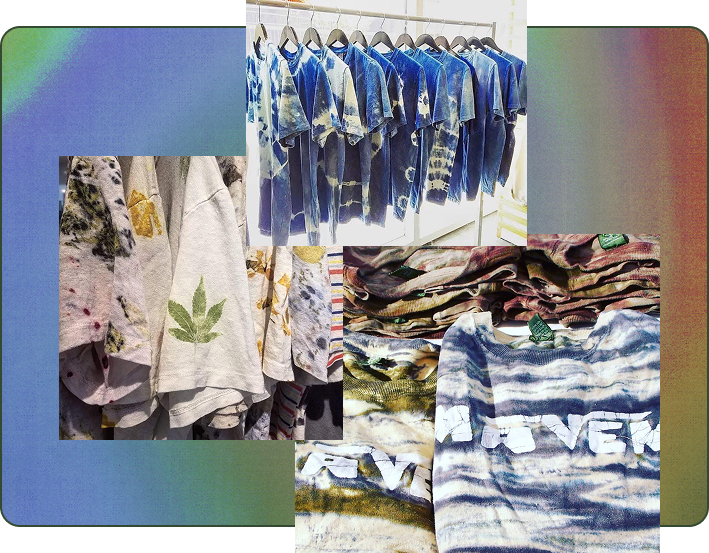 2007
We also launched the Original Tee — which became a cult favorite.
2007
We also launched the Original Tee — which became a cult favorite.
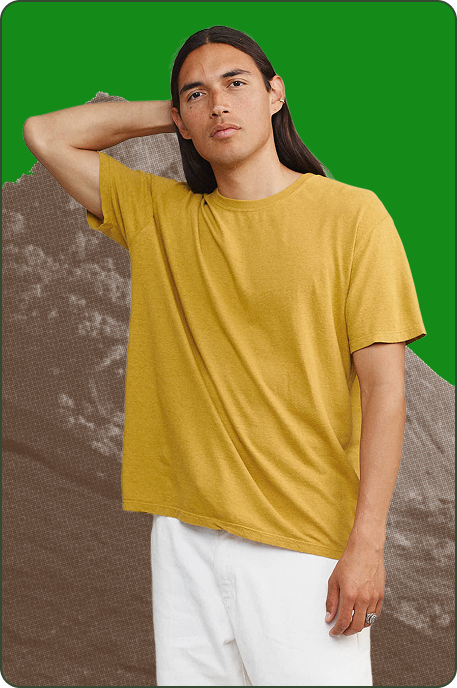 2010
HEMP 2020 started as a bold initiative—to highlight hemp’s powerful environmental benefits and support its legalization in the U.S. It was a push to bring back one of the planet’s most regenerative and misunderstood crops.
2010
HEMP 2020 started as a bold initiative—to highlight hemp’s powerful environmental benefits and support its legalization in the U.S. It was a push to bring back one of the planet’s most regenerative and misunderstood crops.
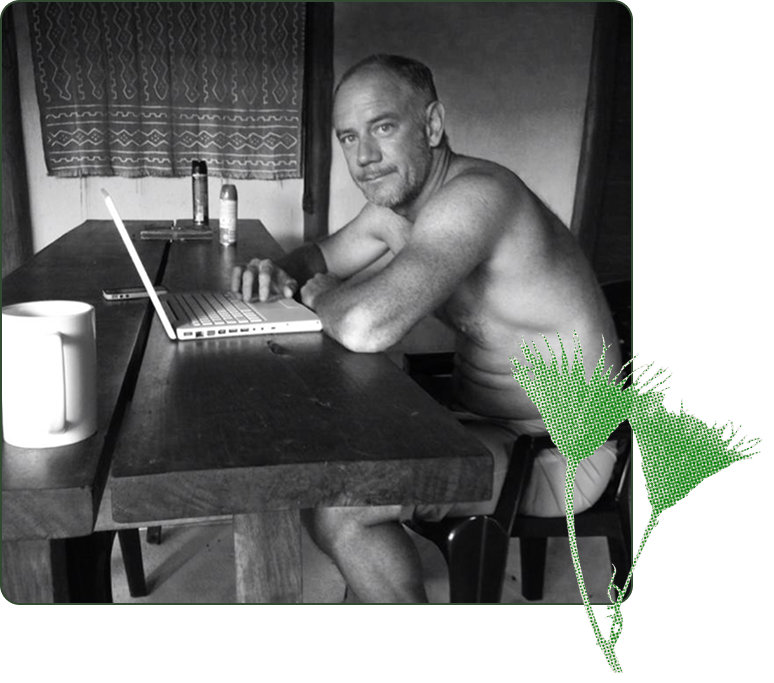 2012
Introduced the first 100% hemp tee.
2012
Introduced the first 100% hemp tee.
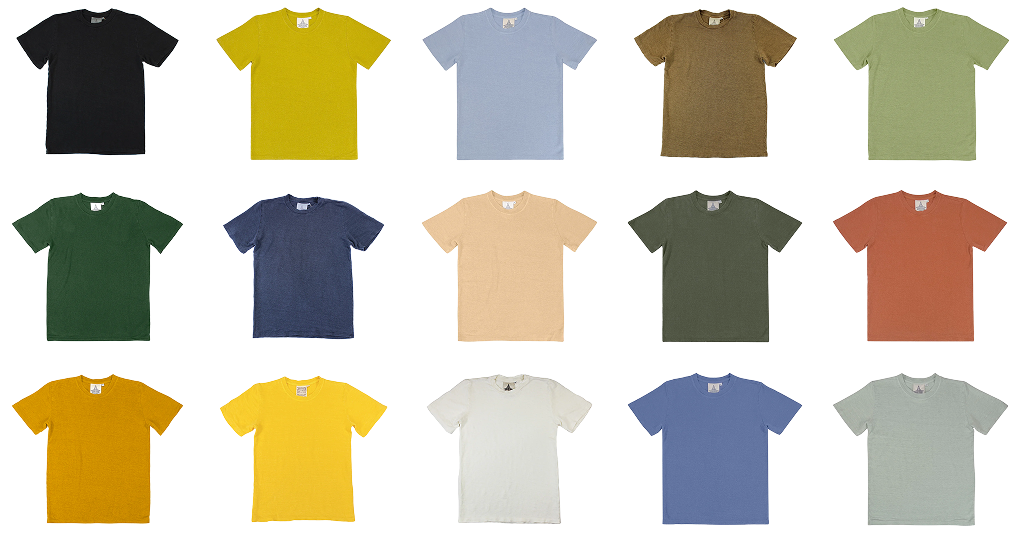 Hemp can be a challenging fabric to knit, so it was an accomplishment when we perfected this pure hemp knit with a result that feels and drapes like raw silk.
2013
We showed in the Above Tree Line section of the Capsule Trade Show, where we became one of the key brands in the fashion movement to merge outdoor style with high fashion streetwear.
Hemp can be a challenging fabric to knit, so it was an accomplishment when we perfected this pure hemp knit with a result that feels and drapes like raw silk.
2013
We showed in the Above Tree Line section of the Capsule Trade Show, where we became one of the key brands in the fashion movement to merge outdoor style with high fashion streetwear.
 2014
The 2014 Farm Bill marked a turning point, allowing U.S. states to cultivate hemp through research and pilot programs. Jungmaven’s founder played an active role in that progress through his work with the Hemp Industries Association (HIA)—founded in 1994—which was instrumental in driving the legislative momentum that led to the legalization of hemp in both the 2014 and 2018 Farm Bills.
2014
The 2014 Farm Bill marked a turning point, allowing U.S. states to cultivate hemp through research and pilot programs. Jungmaven’s founder played an active role in that progress through his work with the Hemp Industries Association (HIA)—founded in 1994—which was instrumental in driving the legislative momentum that led to the legalization of hemp in both the 2014 and 2018 Farm Bills.
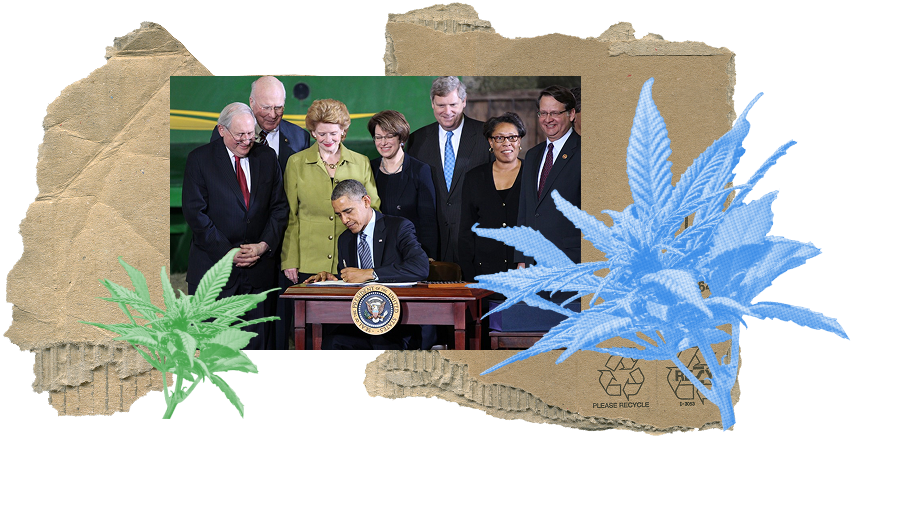 2017
Began knitting fabric in Los Angeles, CA.
Now, we not only cut + sew our garments in LA, but knit hemp in the city as well.
2017
Began knitting fabric in Los Angeles, CA.
Now, we not only cut + sew our garments in LA, but knit hemp in the city as well.
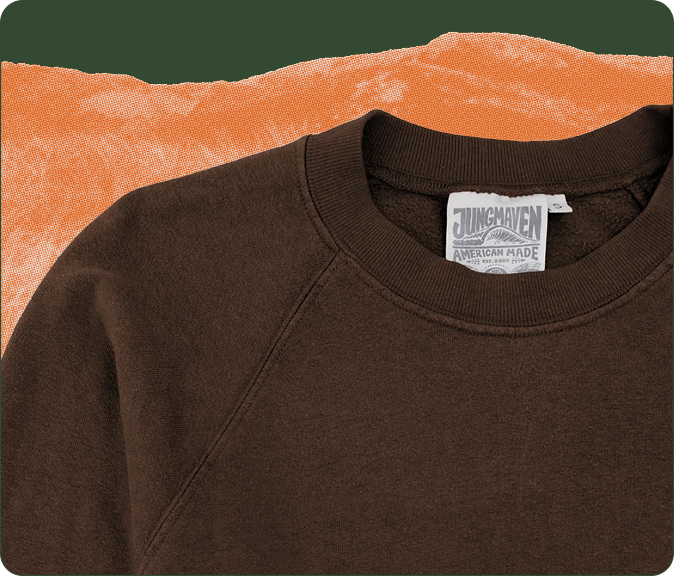 2019
The 2018 Farm Bill passed, fully legalizing hemp production on a federal level in the U.S., achieving a major objective from our HEMP2020 campaign.
The Cropped Ojai was born, out of a happy accident. A run of our Ojai Tees came out too short– so we rolled with it and the cropped version quickly became a bestseller.
2019
The 2018 Farm Bill passed, fully legalizing hemp production on a federal level in the U.S., achieving a major objective from our HEMP2020 campaign.
The Cropped Ojai was born, out of a happy accident. A run of our Ojai Tees came out too short– so we rolled with it and the cropped version quickly became a bestseller.
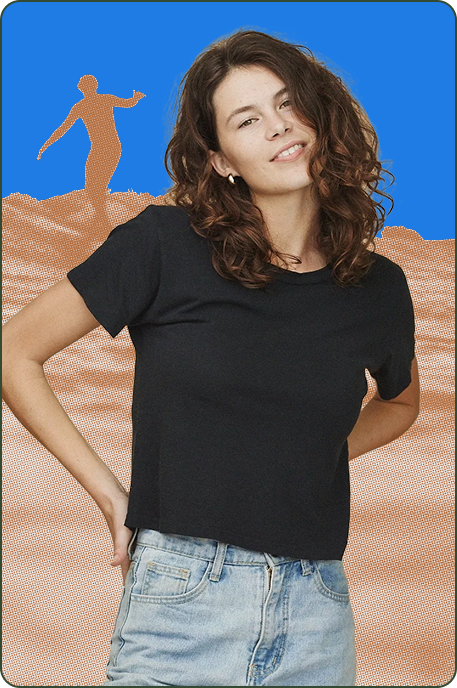 2019
We introduced Hemp Ripstop fabric – combining the durable hemp fibers with a special reinforced weaving technique that results in fabric that’s super resistant to tears, while remaining lightweight.
2019
We introduced Hemp Ripstop fabric – combining the durable hemp fibers with a special reinforced weaving technique that results in fabric that’s super resistant to tears, while remaining lightweight.
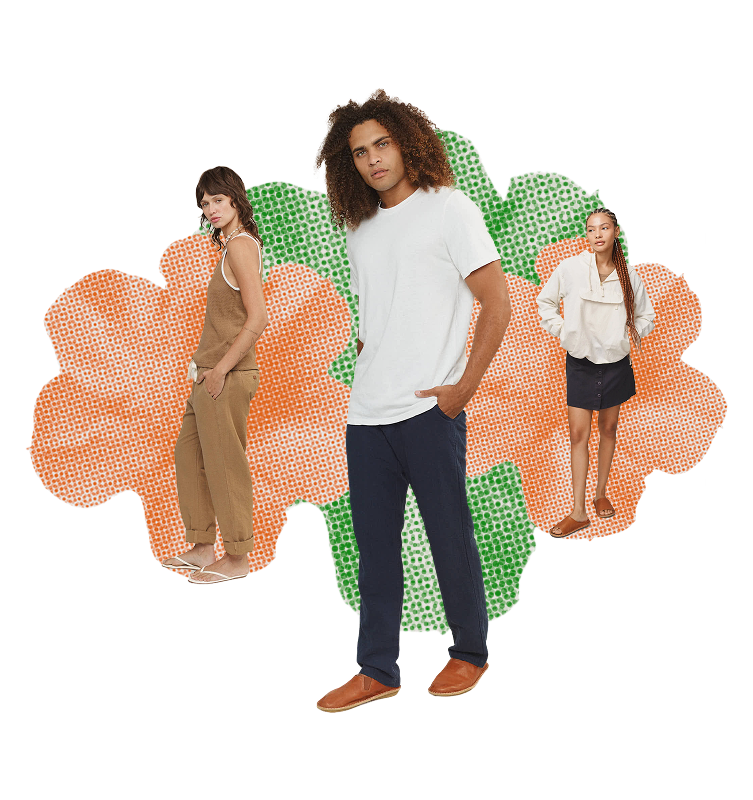 2020
We launched Intimates + Activewear with a new hemp fabric that we innovated to be silky soft with the perfect amount of stretch. An earth-friendly alternative to toxic synthetics found in most activewear.
2020
We launched Intimates + Activewear with a new hemp fabric that we innovated to be silky soft with the perfect amount of stretch. An earth-friendly alternative to toxic synthetics found in most activewear.
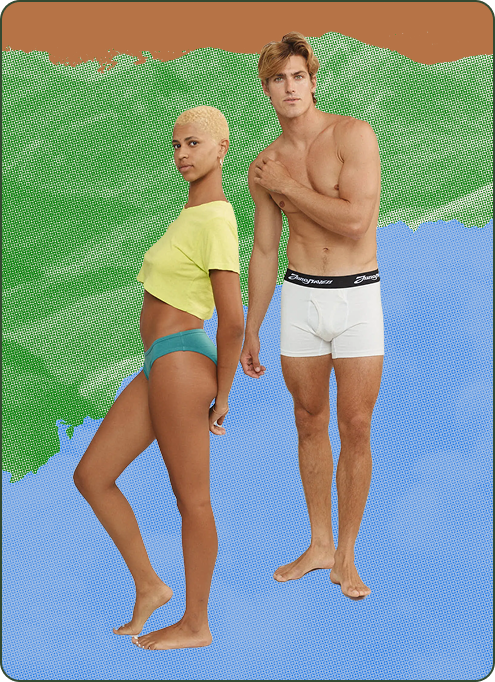 We added a Kids’ Collection — with “Grom” tees, sweatshirts, and shorts—so parents have a natural, comfortable option for the little ones, too.
We added a Kids’ Collection — with “Grom” tees, sweatshirts, and shorts—so parents have a natural, comfortable option for the little ones, too.
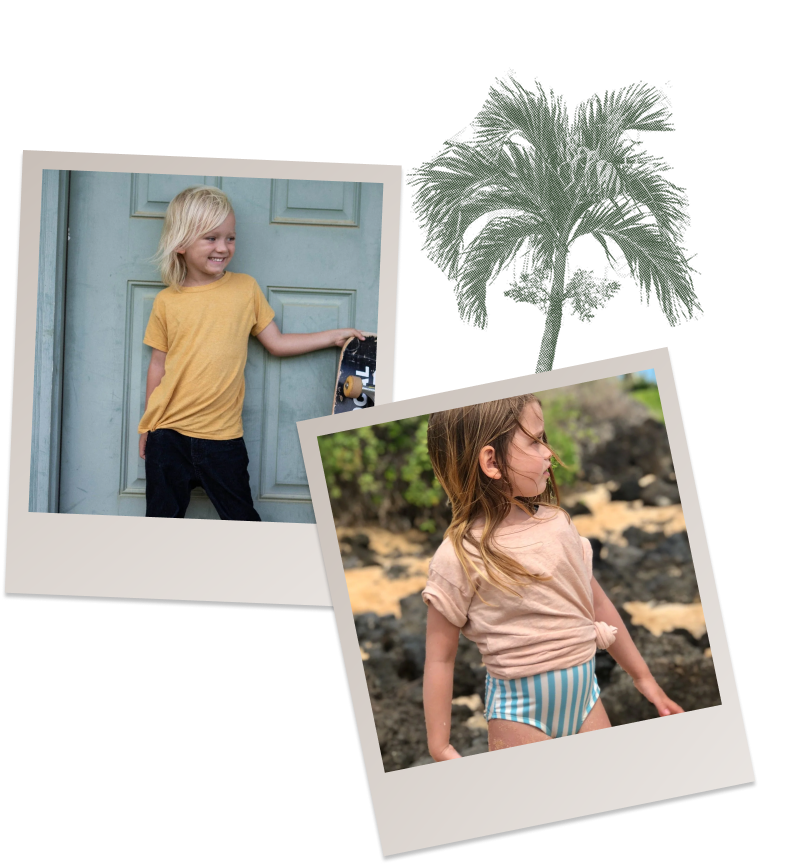 2021
We brought together Hemp + Wool in sweatshirts, sweatpants, tees, socks, and beanies—blending the best of both fibers to create fabric that’s incredibly soft, naturally temperature-regulating, moisture-wicking, and odor-resistant.
The properties of these two fibers when combined results in extremely soft fabric that’s naturally temperature regulating, moisture-wicking and antimicrobial (making it odor-resistant).
2021
We brought together Hemp + Wool in sweatshirts, sweatpants, tees, socks, and beanies—blending the best of both fibers to create fabric that’s incredibly soft, naturally temperature-regulating, moisture-wicking, and odor-resistant.
The properties of these two fibers when combined results in extremely soft fabric that’s naturally temperature regulating, moisture-wicking and antimicrobial (making it odor-resistant).
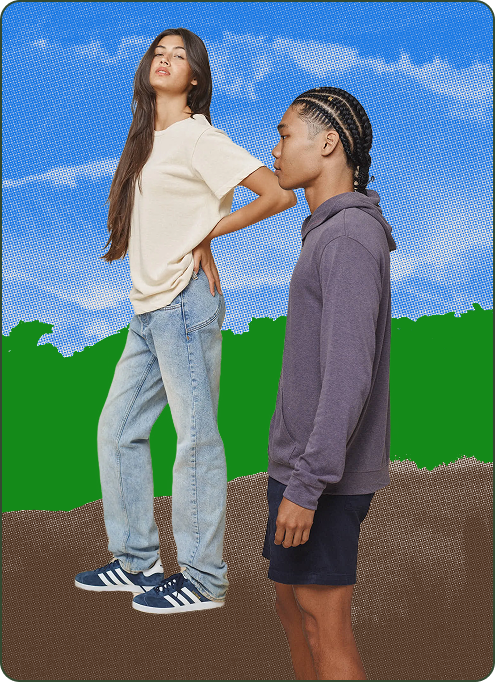 2023
We launched Hemp Denim—a true labor of love and study in fabric-finding—and built our very first denim pieces out of a super soft but durable hemp + organic cotton blend.
2023
We launched Hemp Denim—a true labor of love and study in fabric-finding—and built our very first denim pieces out of a super soft but durable hemp + organic cotton blend.
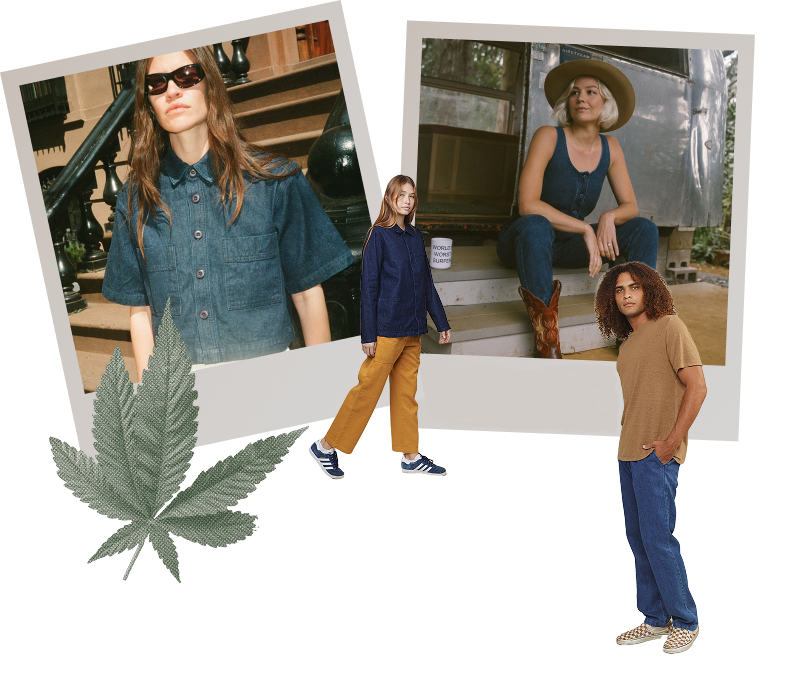 2024
We launched our resale site: EVER JUNG: The Hemp Exchange, allowing our community to buy + sell pre-loved Jungmaven, cultivating a shift towards a circular economy.
2024
We launched our resale site: EVER JUNG: The Hemp Exchange, allowing our community to buy + sell pre-loved Jungmaven, cultivating a shift towards a circular economy.

2005
The idea for Jungmaven was born on the beaches of Mal Pais, Costa Rica.
Some original Jungmaven logo marks from our early days.

2006
Our very first tee shirts were produced, all batik and or naturally dyed by hand. This founding tee shirt shape lives on as the Baja Tee, one of our bestsellers to this day.

2007
We also launched the Original Tee — which became a cult favorite.

2010
HEMP 2020 started as a bold initiative—to highlight hemp’s powerful environmental benefits and support its legalization in the U.S. It was a push to bring back one of the planet’s most regenerative and misunderstood crops.

2012
Introduced the first 100% hemp tee.

Hemp can be a challenging fabric to knit, so it was an accomplishment when we perfected this pure hemp knit with a result that feels and drapes like raw silk.
2013
We showed in the Above Tree Line section of the Capsule Trade Show, where we became one of the key brands in the fashion movement to merge outdoor style with high fashion streetwear.

2014
The 2014 Farm Bill marked a turning point, allowing U.S. states to cultivate hemp through research and pilot programs. Jungmaven’s founder played an active role in that progress through his work with the Hemp Industries Association (HIA)—founded in 1994—which was instrumental in driving the legislative momentum that led to the legalization of hemp in both the 2014 and 2018 Farm Bills.

2017
Began knitting fabric in Los Angeles, CA.
Now, we not only cut + sew our garments in LA, but knit hemp in the city as well.

2019
The 2018 Farm Bill passed, fully legalizing hemp production on a federal level in the U.S., achieving a major objective from our HEMP2020 campaign.
The Cropped Ojai was born, out of a happy accident. A run of our Ojai Tees came out too short– so we rolled with it and the cropped version quickly became a bestseller.

2019
We introduced Hemp Ripstop fabric – combining the durable hemp fibers with a special reinforced weaving technique that results in fabric that’s super resistant to tears, while remaining lightweight.

2020
We launched Intimates + Activewear with a new hemp fabric that we innovated to be silky soft with the perfect amount of stretch. An earth-friendly alternative to toxic synthetics found in most activewear.

We added a Kids’ Collection — with “Grom” tees, sweatshirts, and shorts—so parents have a natural, comfortable option for the little ones, too.

2021
We brought together Hemp + Wool in sweatshirts, sweatpants, tees, socks, and beanies—blending the best of both fibers to create fabric that’s incredibly soft, naturally temperature-regulating, moisture-wicking, and odor-resistant.
The properties of these two fibers when combined results in extremely soft fabric that’s naturally temperature regulating, moisture-wicking and antimicrobial (making it odor-resistant).

2023
We launched Hemp Denim—a true labor of love and study in fabric-finding—and built our very first denim pieces out of a super soft but durable hemp + organic cotton blend.

2024
We launched our resale site: EVER JUNG: The Hemp Exchange, allowing our community to buy + sell pre-loved Jungmaven, cultivating a shift towards a circular economy.

Looking Ahead!
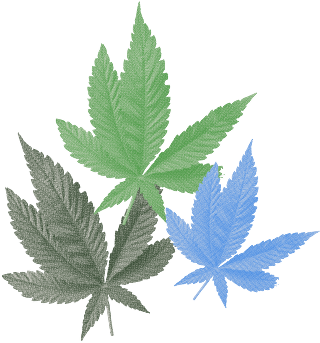
Reuse, Recycle
We’re further expanding our upcycling program, with the goal to create a circular ecosystem for all Jungmaven garments. Jungmaven + Trashie's Take Back Bag provides customers with an easy and simple way to recycle unwanted clothing and textiles.
Grown + Sewn
Regulations still make it challenging to grow industrial hemp in the U.S. at a scale necessary for textile manufacturing. We continue to advocate for domestic hemp cultivation and are working towards offering ‘Grown + Sewn’ garments in the USA within the next few years.
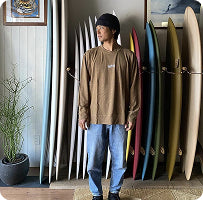
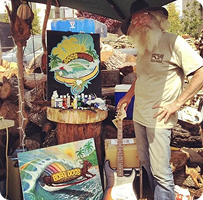
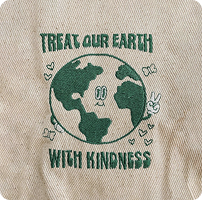
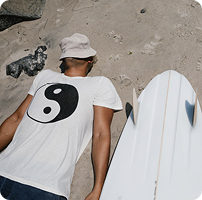
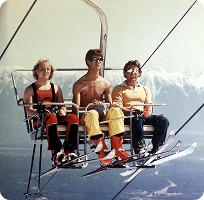
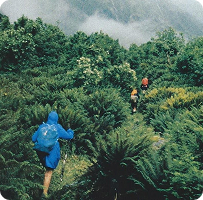
- Choosing a selection results in a full page refresh.
- Opens in a new window.

